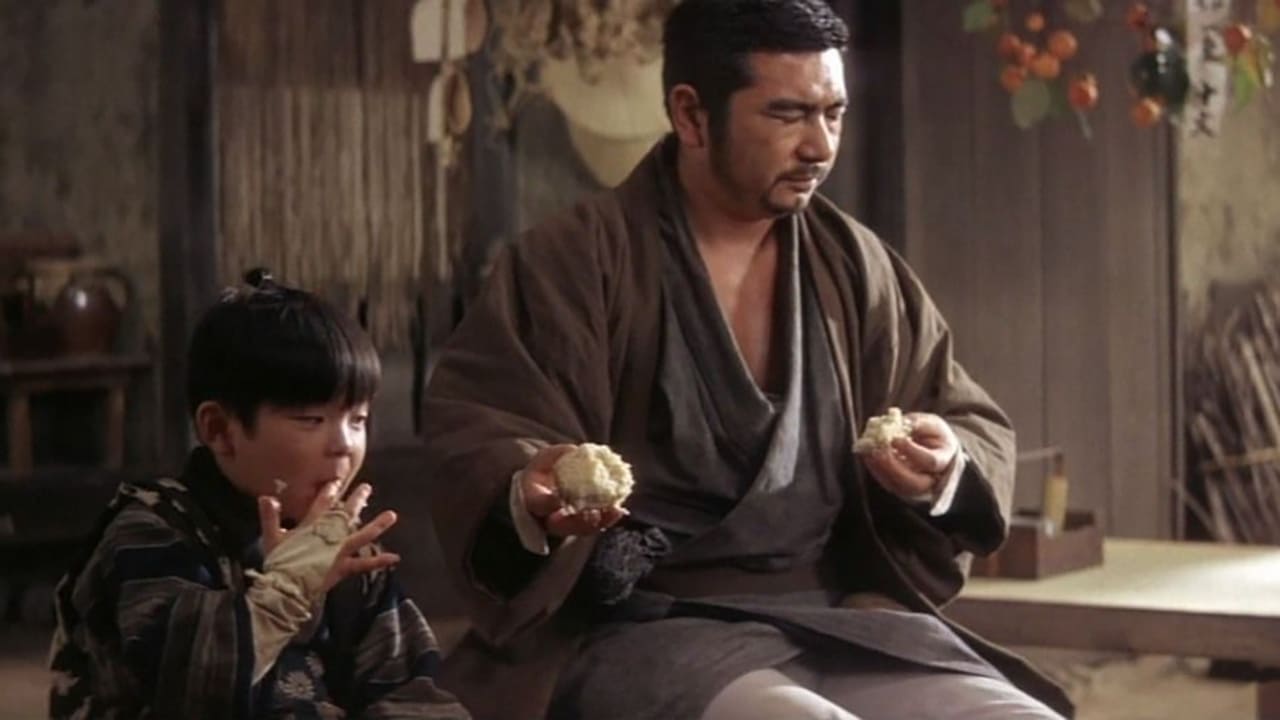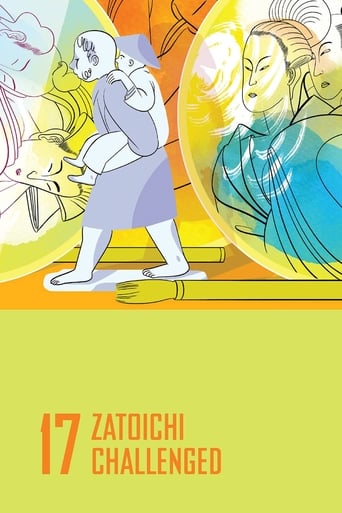


I gave it a 7.5 out of 10
... View Moredisgusting, overrated, pointless
... View MoreMostly, the movie is committed to the value of a good time.
... View MoreThis movie tries so hard to be funny, yet it falls flat every time. Just another example of recycled ideas repackaged with women in an attempt to appeal to a certain audience.
... View MoreDirector Kenji Misumi returns to the series once more to direct Zatoichi Challenged, the 17th installment of the saga. Coming off from Zatoichi the Outlaw, one of the fresher entries, you might be surprised to find out that this movie is back to the old generic roots without much, if any, innovation. The plot is lifted from Fight! Zatoichi! Fight! (also directed by Misumi), except the boy that Zatoichi takes care of isn't a toddler in this case, and overall the film feels very plain, without anything new thrown onto the table.There's a peculiar sub-plot with the baddies smuggling some dining plates with pornographic drawings on them (inspiring the excellent Criterion artwork), but it doesn't live up to the potential and in fact sounds more like a plot for a Hanzo the Razor film. The kid's acting is pretty bad, and the movie starts off like a musical, with one song after another. Luckily, it quickly abandons this idea. There's also another mystery ronin, this time a bad guy, unlike the altruistic philosopher from the previous film. Here, the movie ends with a duel between him and Zatoichi, and what makes it interesting is that the ronin's fate is radically different from the other bad guys' from the franchise.The only thing #17 improves as opposed to #16 is the soundtrack. Sei Ikeno's music in #16 is too intrusive and melodramatic (but I forgive him, for he composed one of the best movie soundtracks ever for 1968's Affair in the Snow), while the soundtrack to #17 almost feels like it belongs in a spaghetti western.Highlight of the film: Zatoichi slices off some guy's eyebrows.
... View More**SPOILERS - but none that explain the whole film...An enigmatic samurai repeatedly crosses Ichi's path (with Zato sporting that new sword from the previous film) as the hero becomes saddled with, and attached to, an orphan. Along the way the audience is confronted by yet another morality question: Should the long arm of the law reach out with blind, unswerving justice or redemptive morality? The opening song is sung by Katsu-san himself, doing justice to the musicality instilled by his father. Another song is sung by the pop-singer Nakao Mie. This entry has brilliant cinematography, strong secondary stories, and excellent acting by supporting cast. The great evil in this film involves the use of "forbidden materials" to produce pornographic art - each piece worth a small fortune. The final showdown is considered one of the best of the series.The orphan boy Ryota is played by Saitô Shinya - according to the book World Filmography: 1967; page 423.
... View MoreThis is another entry in the series directed by Kenji Misumi, but perhaps it is not one of his best.This is a good film. I like the variety of characters and emotions in the film. Although I don't sing enka (traditional Japanese love songs) in the karaoke, I enjoyed seeing it here in this film. Zatoichi loves any kind of music. And yes, it does seem very 1960s, because the film was MADE in the 1960s.Unlike other Misumi films which are tightly paced and have a clear direction, Zatoichi Challenged meanders a bit through the middle of the film. It is the ending of the film which should have your full attention.Once again, Zatoichi must square off against a samurai. But unlike other entries in the series, Zatoichi actually respects this one. But in the end, Zatoichi must defy the samurai to protect his friends. The usual duel ensues, but the ending to the duel is unique and very satisfying.This one is worth watching if you are a Zatoichi fan and worth the price for Zatoichi collectors.
... View MoreShintaro Katsu's Zatoichi is such a memorable character not only because of his talent with a sword, but because he acts justly in an unjust world, even as a member of the yakuza "gangster" caste, an outcast of normal society, a nobody in status compared to a samurai; often, in fact, labeled a criminal. No one respects him for his honor, but only for his ability to kill. The world around him is based on fear, corruption and evil, and even the people that are good are invariably weak in the face of the strong and corrupt.This Zatoichi story is unique. The blind swordsman is at a traveler's inn with a woman and her child when the woman dies. Her dying request is that Ichi take the boy to his father. Unfortunately the father is trapped in a plot to produce forbidden images on pottery and plates -- artistic renditions of women that are often hardly even suggestive, but in those days were outlawed. It is over pottery designs that much violence is to occur thanks to corrupt officials, evil yakuza, and the twisted justice of the government.Zatoichi has often been juxtaposed with a costar acting as a foil. In ZATOICHI CHALLENGED that foil is a child on the road with Ichi. This pairing elicits just the right combination of emotion and personality from the blind swordsman, giving his character added depth and feel. It is very gratifying to see Zatoichi in a fatherly role.Ichi deserves more empathy and respect in this film. The father-son story device, the twisted justice of the government samurai, and the stylistic energy of the film are the perfect background for what Ichi's character symbolizes. Here Ichi is complete; an excellent protagonist.The final battle scene takes uncommon form -- the added effect of the snow alone makes it magical. It is more stylistically shot than most Zatoichi battles, it seems edited with emphasis on emotion rather than action, and it ends in a very atypical way. Here the action seems to be balanced well in benefit of the story and style of the film. This makes the action for its own sake all the more beautiful to watch.Also see the father-son device used in another excellent samurai series, Lone Wolf and Cub (Kozure Okami), starring Shintaro Katsu's brother, Tomisaburo Wakayama.
... View More